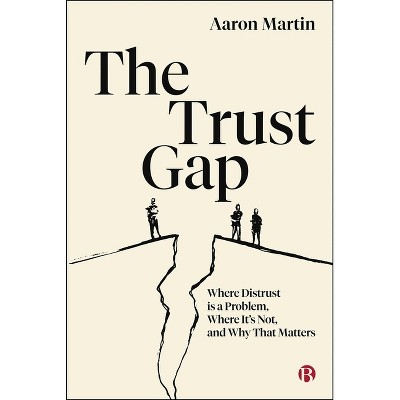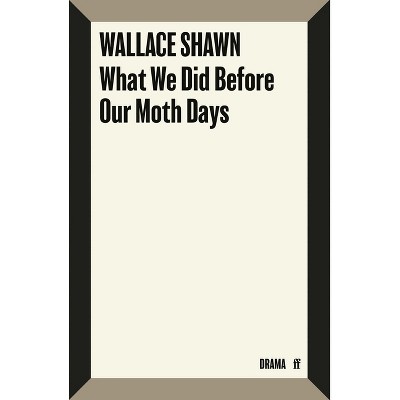Sponsored

Breaking the Bonds of Fate - by John Bellamy Foster (Hardcover)
Out of Stock
Sponsored
About this item
Highlights
- The immanent dialectic of the ancient Greek materialist philosopher, Epicurus (341-270 BCE), helped inspire the nineteenth-century ideas of Karl Marx, forming the subject of his doctoral dissertation.
- About the Author: John Bellamy Foster is a Professor Emeritus of Sociology at the University of Oregon and editor of Monthly Review.
- 336 Pages
- Philosophy, Political
Description
Book Synopsis
The immanent dialectic of the ancient Greek materialist philosopher, Epicurus (341-270 BCE), helped inspire the nineteenth-century ideas of Karl Marx, forming the subject of his doctoral dissertation. Marx's detailed study of Epicurus led him to develop his own materialist dialectic in distinction to the idealist philosophy of G. W.F. Hegel. Until now, however, there has been no full scholarly treatment of the relation of Epicurus to Marx, paying equal attention to both thinkers and examining the long-term impact of Epicureanism on Marxist thought.
Breaking the Bonds of Fate: Epicurus and Marx fills this gap. Taking into consideration today's revolution in the understanding of Epicurus--resulting from the recovery of fragments of his major work On Nature in the carbonized papyri that survived the burying in volcanic ash of the Roman town Herculaneum when Mt. Vesuvius erupted in 79 CE--it demonstrates that this new interpretation corresponds closely to Marx's nineteenth-century treatment of Epicurus. The result is to fundamentally transform our contemporary understanding of both Epicurus and Marx.
Review Quotes
"Breaking the Bonds of Fate is a splendid contribution to intellectual history. With a combination of panache and scholarly rigour Foster presents Epicurus as a major influence on Marx and Marxism. in Epicurus Karl Marx found a highly congenial philosophy thanks to the Greek thinker's materialism, naturalistic physics, anthropology and rejection of fatalistic determinism. This book casts new light on the ancient thinker's presuppositions and the German context of Marx's doctoral dissertation on the differences between Democritus and Epicurus."--A.A.Long, author, "Hellenistic Philosophy: Stoics, Epicureans, Sceptics"
"A breathtaking intellectual, philosophical, and political history of Epicurus and Marx for which there is no equivalent. This is the final and culminating book in Foster's trilogy and for me, the most synthetic and powerful. An extremely well researched book that will be cited for many years to come on this topic."--Thomas Nail, distinguished scholar and professor of philosophy, University of Denver; author, "Marx in Motion: A New Materialist Marxism and Lucretius I, II, and III"
"Marx wrote his PhD thesis about Epicurus, a highly influential ancient philosopher. Not many readers of Marx know what to do with this fact. Delivering an encyclopedic account of Marx and Epicurus in relation to one another, as well as the reception of Epicureanism in Marxist discourse, John Bellamy Foster aims to change this. He knows everything there is to know about Marx and Epicurus, and shares his knowledge in a helpful and eloquent way."--Boris Hennig, Associate Professor of Philosophy, Toronto Metropolitan University
"Offering a new perspective on Epicurus, this book provides an impressive presentation of Marx's materialism from an Epicurean point of view. Absolutely fascinating!"--Michael Heinrich, author, "Karl Marx and the Birth of Modern Society"
"This is a book we have long needed. A dark corner of the young Marx's intellectual formation is convincingly lit up, by an author with an impressive command of both Epicurean atomism and the history of 19th-century German philosophy."--David Sedley, University of Cambridge
About the Author
John Bellamy Foster is a Professor Emeritus of Sociology at the University of Oregon and editor of Monthly Review. He has written many books including The Robbery of Nature (with Brett Clark) and The Return of Nature, which won the Deutscher Memorial Prize.Shipping details
Return details
Frequently bought together

Trending New Books
















